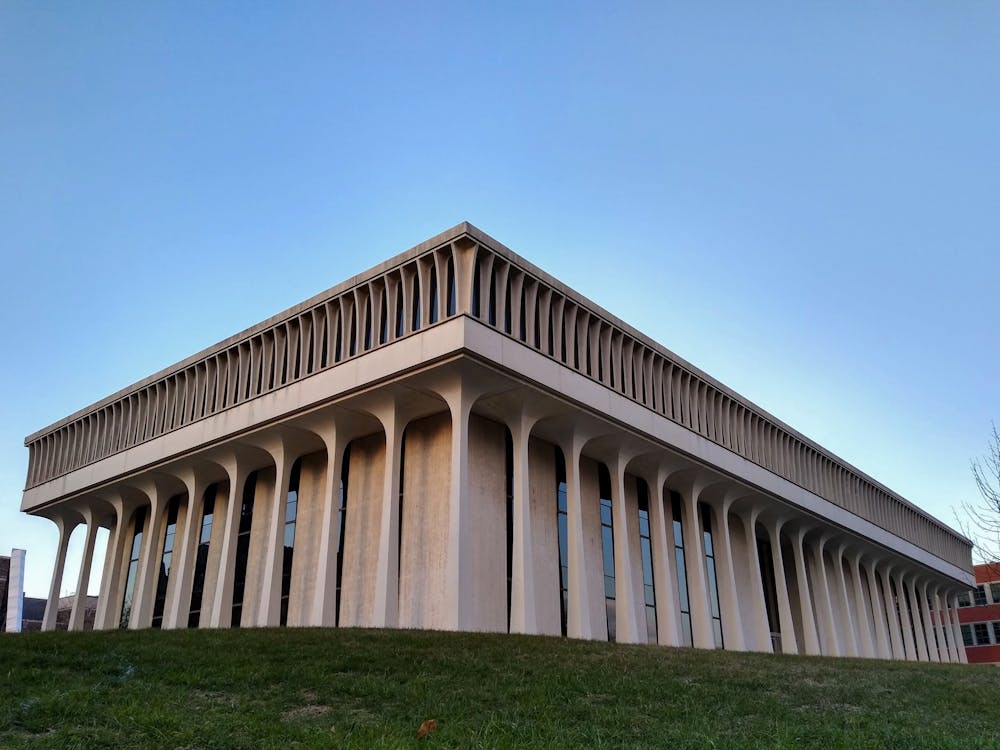Content warning: The following article contains mention of sexual assault and suicide.
On Sept. 26, Students for Prison Education, Abolition, and Reform (SPEAR) hosted students and community members for a screening of “Us Too: Women Silenced Behind Bars Speak Out.” The documentary, produced and directed by journalist Val Kiebala follows Cynthia Alvarado, a formerly incarcerated woman’s experience with the United States justice system and the trauma she underwent in prison.
After the screening, students participated in a panel discussion with Kiebala and Alvarado on women’s experiences in prison, specifically with sexual assault, and also watched a pre-recorded interview with Rose Dinkins, a woman who is currently incarcerated.
The documentary followed Alvarado’s conviction and sentence of life without parole for a murder she did not commit.
“I went to trial thinking I would go home because I didn’t commit the crime. When I was convicted, I felt like my country hated me,” Alvarado said during the discussion.
The Daily Princetonian sat down with Alvarado after the panel to ask her how Princeton students can get involved with criminal justice reform. She explained that education is a crucial step toward abolition and implored students to attend events like SPEAR’s.
“We need your help. There are a lot of criminal cases,” she said. “Students right now could do research on cases to see what went wrong. Was there some type of error, was there a dirty cop — things like that. [Students] could gather support in the courtroom so that people [on trial] know that they’re not alone, that people are watching.”
Alvarado also described facing many tragedies during her time in prison. She spoke of the 240 days she spent in solitary confinement — during which she contemplated suicide on multiple occasions — and of being raped by a guard, which triggered an overwhelming sense of loneliness.

“Who could I tell about the rape? The people who had the keys to my cell? The same people who were oppressing me?” Alvarado said in the documentary.
In the documentary, she criticized the #MeToo movement for its initial failure to include incarcerated women in its goals. In her interview with the ‘Prince,’ she said that she has since been invited to speak at a #MeToo event as a result of her advocacy.
In the discussion, Alvarado spoke about being a mother in prison and the fear inmates have that their children will also end up in the prison system. “As a mother in the carceral system, you feel like a failure,” she explained.
“The courts never talk about children. Kids will then end up going through the same process,” she said.

After several denials in the lower courts, Alvarado was eventually released in 2020 after filing a Habeas Corpus appeal, a right in the Constitution that protects people from unlawful imprisonment.
She explained in the discussion that she had spent hours in the prison library reading about the law and her rights. She eventually came to understand that her conviction was a breach of her constitutional rights, a matter that can be taken up by the Supreme Court. Independently, she fought until the appeal was granted.
“Judge Leeson restored my faith in humanity,” Alvarado said of the judge who granted her appeal.
After she was released, she vowed to never give up on the women she left behind in prison.
Audience members also watched a pre-recorded interview with Rose Dinkins, a currently incarcerated Black woman. She was a good friend of Alvarado’s while incarcerated and helped her get through life in prison, a primary motivation for Alvarado’s advocacy against life without parole sentences.
Alvarado and Kiebala explained that Dinkins attempted to rob a store in the 1970s in order to feed her children. She was charged with two counts of murder of police officers, committed during the robbery in what she says was self-defense, and sentenced to life in prison without parole.
In the discussion, Alvarado explained that she wants to change the perspective around Dinkins’ story. She told the audience that Dinkins was a Black woman in the 1970s who could not find a job due to her race and gender and thus resorted to robbery. In prison, Dinkins obtained her GED and associate’s degree and is now a paralegal.
Today, Alvarado said she works to eliminate the injustices of the system she was placed in through education and policy change. In her home state of Pennsylvania, she said, she is fighting to end a statute of limitations on rape against incarcerated women and life without parole sentences.
According to Kiebala, there are ways that the carceral system keeps prisoners’ stories shielded from the public. Kiebala explained that when she set the interview with Dinkins, Alvarado was removed from Dinkins’ visitor list, which she said she believes was because prisons want to hide the truth of what occurs behind bars.
Amber Rahman ’24 and Alan Gutiérrez ’25, SPEAR’s co-presidents, co-led the discussion. “It is so important to center the voices of incarcerated and formerly incarcerated people, particularly women of color who are systemically silenced by the carceral state,” Rahman explained.
Rahman also emphasized the unique obligation that Princeton students have to help women of color who are incarcerated.
“We uniquely have access to power that we must use to fight to stop the incredible harm that prison, solitary confinement, and criminalization does against women of color particularly,” she said.
Correction: A previous version of this article referred to Alan Gutiérrez as a co-lead of the event as opposed to a co-president of SPEAR.
Abby Leibowitz is a news contributor for the ‘Prince.’ She can be reached at al6080@princeton.edu, @abigalleibow1 on Twitter and @abby.leibowitz on Instagram.
Bridget O’Neill is a news contributor for the ‘Prince.’ She can be reached at bo1815@princeton.edu, and @bridgetroneill on Instagram.








